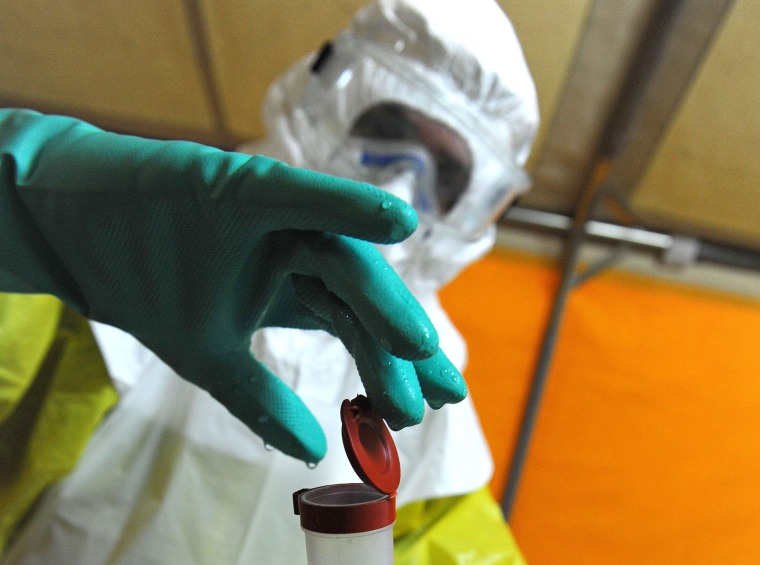From headaches and memory loss to vision problems and infected semen, Ebola survivors are suffering serious, long-term effects from their battles with the deadly virus, new studies show.
The most high-profile patient may be Scottish nurse Pauline Cafferkey, who is back in a London hospital for the second time after her recovery from infection. But thousands of people in Liberia, Guinea and Sierra Leone are also suffering, researchers say.
“While an end to the outbreak has been declared, these survivors are still struggling with long-term problems,” said Dr. Lauren Bowen of the National Institute of Neurological Disorders and Stroke (NINDS), who worked on one of the studies.
Cafferkey got infected while helping fight the Ebola epidemic in West Africa. She was taken back to the hospital once last year when the virus began replicating in her spinal fluid, causing symptoms.
“While an end to the outbreak has been declared, these survivors are still struggling with long-term problems."
She is in "stable" condition at the Royal Free Hospital this week after another bout with after-effects of the virus, which can remain in the eyes, semen and spines and brains of survivors.
Studying survivors like Cafferkey can help health officials understand what patients will have to deal with in the future.
“We wanted to find out more about possible continued long-term brain health problems for the more than 17,000 survivors of the infection,” Bowen said.
The team followed 82 Ebola survivors and found most continued to have brain symptoms for six months or longer after they recovered from their initial bout with the virus.
These included weakness, headache, memory loss, depressed mood and muscle pain. Two people were suicidal and one had hallucinations, Bowen’s team told a meeting of the American Academy of Neurology.
Many also had abnormal eye movements, tremors and abnormal reflexes.
Mosoka Fallah of the Liberian Ministry of Health, working with a larger group of patients as part of the same trial, found 60 percent of the more than 1,000 survivors his team looked at had eye problems, 53 percent had musculoskeletal problems and 68 percent had neurological difficulties.
These problems were also common, but not as common, among close contacts who did not get Ebola.
And of the 97 men who provided semen, 38 percent had Ebola detected in the semen at least once.
It was often intermittent, Fallah’s team told the Conference on Retroviruses and Opportunistic Infections in Boston, but the virus could be found in semen for as long as 18 months after a man recovered from infection.
But while only four percent of the sexual contacts of survivors said they regularly used condoms, none have become infected with Ebola.
A woman who died from Ebola last year in Liberia, after the epidemic there had ended, was almost certainly infected by her fiancé, an Ebola survivor, officials have said.
The World Health Organization advises Ebola survivors to abstain from sex for 90 days following recovery. At the very least, they should practice safe sex, the WHO suggests.
Several teams gave other Ebola news to the Boston meeting, which usually focuses on the HIV virus that causes AIDS. LeafBio, Inc., the commercial arm of Mapp Biopharmaceutical, Inc., maker of ZMapp, says its antibody-based treatment seemed to help patients a little.
Related: FDA Fast-Tracks ZMapp
ZMapp-treated patients were 40 percent less likely to die, but not enough patients were treated to really tell how much the drug helped, the company said.
Of the 71 patients included in the analysis, 21 died—an overall fatality rate of nearly 30 percent. The researchers said 37 percent of patients who got standard treatment died while 22 percent of those given ZMapp died.
More than 28,000 people were infected in the West African epidemic of Ebola and more than 11,000 died.

